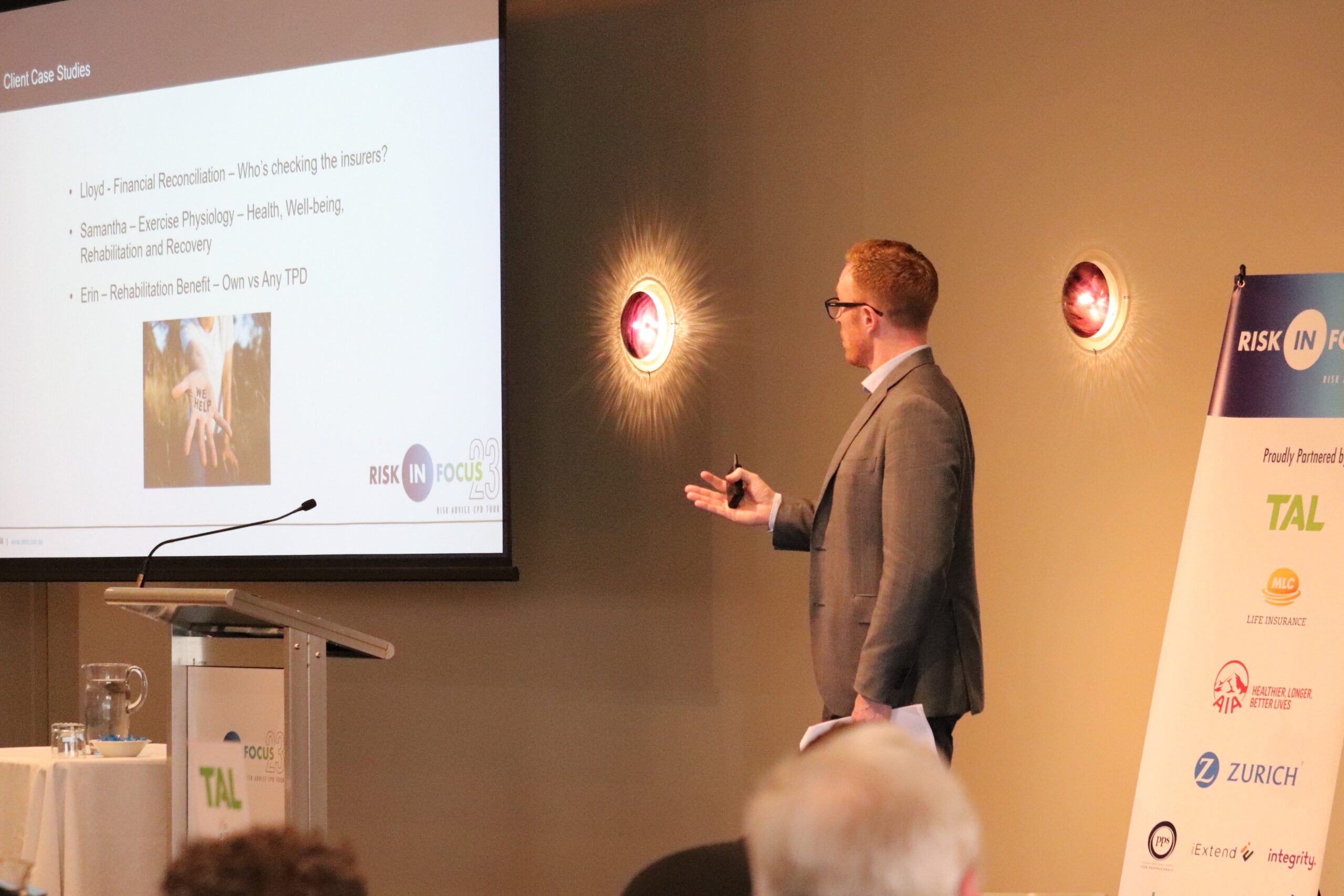The results of our latest poll suggest the possibility of a shift in thinking from advisers when it comes to the prospect of charging fees for risk advice. This has also been reinforced at Riskinfocus 23 and is the Riskinfo Story of the Week…
- Agree (58%)
- Disagree (35%)
- Not sure (7%)
The vexed debate around the prospect of clients paying fees for risk advice continues.
Historically, the notion that a client would be prepared to pay a reasonable fee for risk advice, regardless of whether cover was actually placed, has been consigned by most to the ‘too hard’ basket.
Over time, however, more advisers and advice businesses are breaking down the components of the life insurance advice proposition – either by choice or by necessity – to consider how they might structure their offer in today’s world, where the cost of delivering life insurance and financial advice continues to increase, while maximum risk commission caps have been imposed.
For many, if not most advice businesses – both generalist and risk specialist, the double whammy of increased costs and restricted remuneration, means a commercially viable risk advice proposition still doesn’t ‘compute’. But as is being openly discussed and debated at the Riskinfocus 23 Risk Advice CPD Tour events, there are at least three stages in the risk advice process at which advice businesses have identified where fees may be applied – two of these stages occurring ahead of placing any business on the books:
- Initial assessment of eligibility for cover
- Statement of Advice process
- Claims services
We won’t break down these three elements here – we’ll leave that to you – the point being that advisers and advice businesses are gradually finding different ways to combine commission revenue with fees in order to establish a more commercial footing on which to base life insurance advice services and solutions.
There’s so much more to discuss, including how advice practices structure themselves in order to implement this combination of fees and commissions, and what fee levels they are finding their clients are happy to meet.
We’ll continue this conversation next week, but in the meantime, it’s over to you to have your say…







It is when you want something though it may be unavailable to you, creates an increased value, your desire to attain it and what you will pay.
There has to be an interest and a overriding need and want, before people will part with their money.
For instance, people with health issues and a recognition of their personal and financial predicament if they lost their ability to earn money to pay the bills, are very likely to pay a fee to see if they can attain Life / Disability cover.
The reality though, is that what they are prepared to pay, only covers a portion of what it costs to provide all the work for them to attain the cover they want.
The argument previously made that Australians were happy to pay for risk advice and implementation, has been well and truly seen to be a pipe dream.
The truth and reality, is that every person is different in their ability and willingness to pay fees and it is not a bad thing to try and see if potential clients will pay a fee, so long as it does not put at risk the very thing we are all trying to do, which is to encourage people to take up Life and Disability Insurance that meets their needs, in a way that is easy for them to participate and be involved in.
It has been proven beyond doubt that Australians will not pay a fraction of what it costs to provide risk advice.
Those that have dabbled in charging fees, have found in some circumstances, clients will pay a very small fee for risk only advice and if bundled up with Investment advice, there may be scope to charge a bit more, though that in itself can be a problem with diluting the Planners fee on the other advice.
The best way for holistic advisers to be able to be comfortable and profitable enough for them to jump back into risk advice, is for the commission levels to be sufficient without needing to subsidize via fees that puts additional pressure on clients who are already feeling the pinch of higher interest rates and inflation that has pushed up all their other expenses.
Comments are closed.